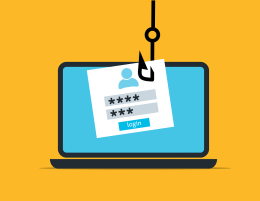 The Better Business Bureau is warning of increased phishing scams related to Amazon Prime Day, online, and brick-and-mortar stores with special sales during July. Phishing is a way cybercriminals try to trick you into sharing personal information, such as passwords, credit card numbers, social security numbers, or bank account numbers, by sending you fraudulent emails or directing you to a fake website.
The Better Business Bureau is warning of increased phishing scams related to Amazon Prime Day, online, and brick-and-mortar stores with special sales during July. Phishing is a way cybercriminals try to trick you into sharing personal information, such as passwords, credit card numbers, social security numbers, or bank account numbers, by sending you fraudulent emails or directing you to a fake website.
In addition to the regular phishing scam attempts this month, cybercriminals are sending phishing emails urging people to “click on a link to confirm their order” or “click on a link to confirm their mailing address.” DO NOT click on those links. If you are concerned about an order, you can always sign in to your Amazon or other online accounts to check your order status. Remember, legitimate businesses will NEVER ask for your account, personal, or financial information by email.
Phishing Scam Tips
- Don’t reply to suspicious, unexpected, or strange emails.
- Be wary of emails with urgent requests for your personal or financial information or sign-in credentials.
- Don’t open unexpected or unusual attachments, attachments from strangers, or strange-looking emails.
- Don’t click links in random emails, emails you suspect are fraudulent, or if you don’t know the sender.
- Don’t click Sign In links. Go to the business website, sign in, or contact their customer service for help.
- Avoid filling out forms in email messages that ask for financial information. Only share credit card information via a secure website or telephone.
Forward any suspicious emails to abuse@k-state.edu. Visit the scams blog to stay up-to-date on scams arriving at K-State.